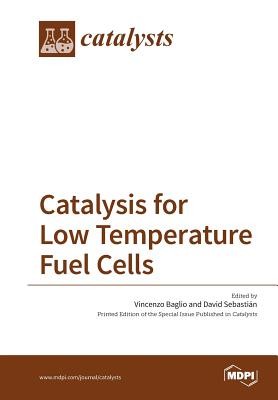
- We will send in 10–14 business days.
- Publisher: MDPI AG
- ISBN-10: 303842658X
- ISBN-13: 9783038426585
- Format: 17 x 24.4 x 1.5 cm, minkšti viršeliai
- Language: English
- SAVE -10% with code: EXTRA
Catalysis for Low Temperature Fuel Cells (e-book) (used book) | bookbook.eu
Reviews
Description
Today, the development of active and stable catalysts still represents a challenge to overcome in the research field of low temperature fuel cells. Operation at low temperatures demands the utilization of highly active catalysts to reduce the activation energy of the electrochemical reactions involved at the electrodes, and thus obtain practical performances and high efficiencies. At present, the most practical catalysts in low temperature fuel cells are highly dispersed Pt nanoparticles. However, these present several drawbacks such as high cost, limited earth resources, sensitivity to contaminants, low tolerance to the presence of alcohols and stability due to carbon support corrosion and Pt dissolution. In the search for alternative catalysts, researchers have looked at several strategies: increase of the utilization of Pt catalysts by means of novel structures (metal/support), alloying with non-platinum metals, new carbon and non-carbon supports, cheaper platinum-group-metals like Pd, non-platinum-group metals catalysts (Fe-N-C, Co-N-C, etc.), etc. This book is intended to cover the most recent progresses in advanced electro-catalysts from the synthesis and characterization to the evaluation of performance and degradation mechanisms, in order to gain insights towards the development of highly active fuel cells.
EXTRA 10 % discount with code: EXTRA
The promotion ends in 22d.11:13:40
The discount code is valid when purchasing from 10 €. Discounts do not stack.
- Publisher: MDPI AG
- ISBN-10: 303842658X
- ISBN-13: 9783038426585
- Format: 17 x 24.4 x 1.5 cm, minkšti viršeliai
- Language: English English
Today, the development of active and stable catalysts still represents a challenge to overcome in the research field of low temperature fuel cells. Operation at low temperatures demands the utilization of highly active catalysts to reduce the activation energy of the electrochemical reactions involved at the electrodes, and thus obtain practical performances and high efficiencies. At present, the most practical catalysts in low temperature fuel cells are highly dispersed Pt nanoparticles. However, these present several drawbacks such as high cost, limited earth resources, sensitivity to contaminants, low tolerance to the presence of alcohols and stability due to carbon support corrosion and Pt dissolution. In the search for alternative catalysts, researchers have looked at several strategies: increase of the utilization of Pt catalysts by means of novel structures (metal/support), alloying with non-platinum metals, new carbon and non-carbon supports, cheaper platinum-group-metals like Pd, non-platinum-group metals catalysts (Fe-N-C, Co-N-C, etc.), etc. This book is intended to cover the most recent progresses in advanced electro-catalysts from the synthesis and characterization to the evaluation of performance and degradation mechanisms, in order to gain insights towards the development of highly active fuel cells.


Reviews